James Russell: have bold ambitions, be passionate about your work, put people at the centre of everything you do.

James Russell, BMath, FCIA, President and Chief Executive Officer of TD Insurance and IIC Board Chair reflects on his career journey and offers advice to members, students and grads for a rewarding career in the insurance industry.
James Russell has spent his entire professional career in insurance. Prior to entering the industry, James studied Mathematics and Engineering at the University of Waterloo, then pursued an education in actuarial sciences. In his career, James has made it a point to learn as much as possible about other parts of the business, working at organizations that use both the broker and direct-to-consumer model. His experiences have given him a holistic perspective of the industry.
Recently, The Pace chatted with James about career aspirations, the importance of volunteering and why insurance education matters.
If you had it to do all over again, is there anything you would do differently in your career journey? What would you be sure to repeat?
Looking back, I was fortunate to have had several valuable roles in my career in underwriting, product, technology and various corporate functions. What I would have done differently was spend less time in each of those roles and push myself outside of my comfort zone to allow for other learning and development opportunities. I believe by taking on more 'stretch-roles' in your career, it will challenge you to look at things differently and gain greater insights that will help you think more strategically, expand your responsibilities and help you learn new skills.
What are you most proud of in both your career and your personal life?
There are many milestones I am proud of to have accomplished throughout my career to date. First, receiving my professional designations— as most of you are taking these courses now, you know that they are incredibly challenging, and once you have completed them you deserve to take a moment to celebrate. I have also had the honour of participating and being a member of several industry Boards, which has allowed me to build broader connections and expand my network. Lastly, I have had the opportunity to lead several teams across insurance and learn from colleagues with different insights and perspective, and I have enjoyed being a mentor and seeing colleagues progress in their career.
A recent example of a project I am incredibly proud of is the launch of Small Business Insurance at TD Insurance in 2023. It was an exciting time to be leading the organization and having an incredible team that helped get us to where we are today. There have been several learnings from the launch of this business, and I can't wait to see what we'll accomplish next, as we continue our commitment to offer peace of mind and protection to small business owners.
In my personal life I'm most proud of my family. My wife and I are raising three incredible children, and I wouldn't trade being a husband and father for anything.
Why do you believe it’s important to continue upgrading your skills and knowledge throughout your career?
It's important because our industry changes so rapidly. New technologies are constantly emerging and changing the way we do business. For example, the advent of Artificial Intelligence (AI) and Generative AI is set to turn all industries upside down. If you don't stay ahead of the curve, you'll be left behind, so it's important to find opportunities to upskill your knowledge. By building these skills, your knowledge of the industry as it stands today, and being prepared for what's to come will set you apart from the rest.
Do you feel volunteering within the industry is essential to expand your knowledge and skillset? If so, why?
Yes, absolutely. Volunteering allows you to give back to others in meaningful ways. It's also a great way to gain different perspectives and network with people you may not interact with otherwise. It's an excellent way to learn more about parts of the industry you may not be familiar with and connects you with senior professionals who can share their experiences with you. On the other hand, it allows you to pay it forward by sharing your knowledge and wisdom with others, and I know for a fact that people will always appreciate you lending your time.
Overall, what is great about volunteering is that you can connect with people who have similar interests and form new connections. It's a fantastic way to advance a cause you care about while growing your professional brand.
As a volunteer with IIC, what has brought you the greatest satisfaction?
What I have enjoyed most from working with the Insurance Institute of Canada is seeing students and members receive their designations— which they have worked so hard to achieve— and launch into their career. It's invigorating to see the passion our next generation of leaders are bringing to the workforce, and I am confident that the industry will be in good hands with this great group of talented people.
This will be your final message as Chair of IIC in The Pace. What parting words or advice would you like to leave with the membership/students/grads of the Institute?
I encourage our members, students and recent graduates to focus on making our industry better today than it was yesterday. We should all strive to ensure we leave our industry better than we found it. The insurance industry attracts wonderful people, and I believe that's because of the nature of our business. Our job is to help protect the futures and the financial well-being of Canadians and their families.
My advice is to:
1. Have bold ambitions.
2. Be passionate about your work.
3. Put people at the centre of everything you do.
In an industry that faces many challenges, you will accomplish great things and make a difference in your career if you keep these three things top of mind.
Taking stock: Wrapping up the CIP Review
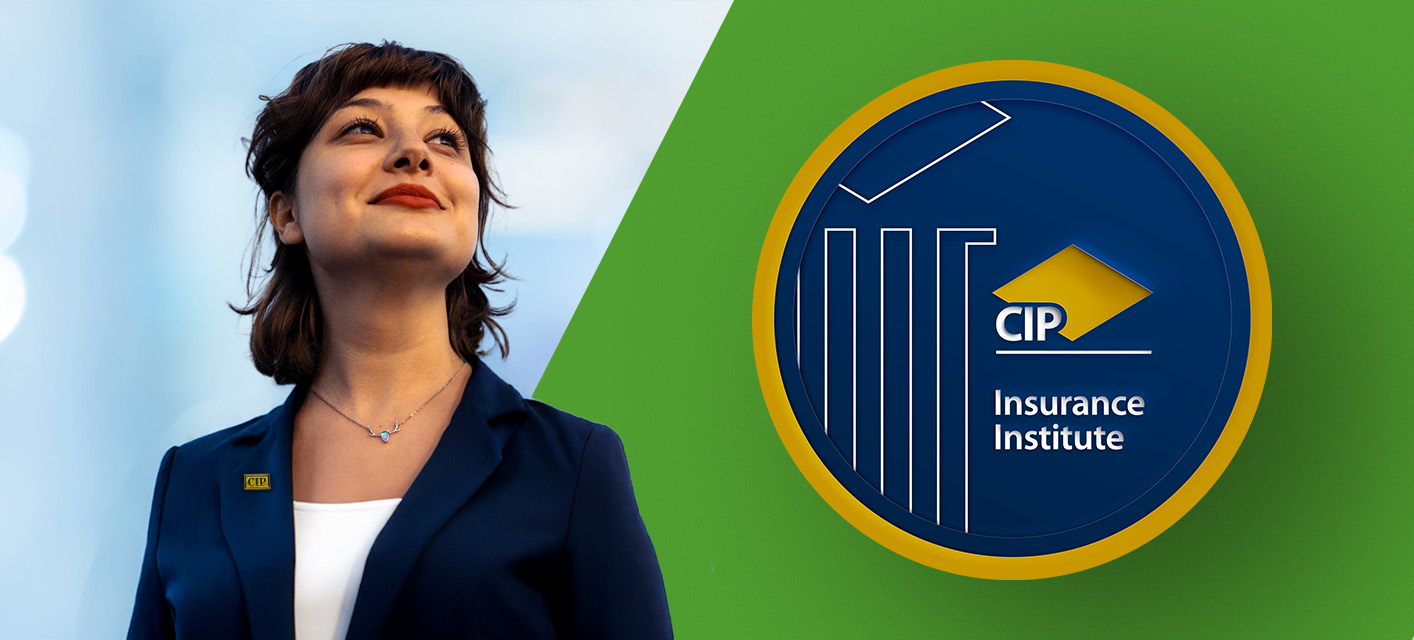
If you’ve taken a CIP course in the past couple of years, you may have noticed a few changes in the online environment, they include: recorded or interactive summaries of each study, new online scenarios you can work through, and links to podcasts about the course content.
These changes and more are products of the CIP review, a multi-year process involving industry consultation, research on effective educational practices, and implementation of new features.
Research-informed revisions
Like most well-managed designation programs, the CIP undergoes a comprehensive review from time to time, to ensure it continues to meet the needs of its stakeholders. Research to inform the most recent review included:
- An environmental scan – a review of best practices and innovations in professional education programs
- 30 in-depth interviews with senior p&c insurance industry stakeholders
- 17 focus groups with CIP candidates, graduates, and instructors
- A survey of Insurance Institute members, garnering over 4,500 responses
Feedback from the research indicated that the CIP program is strong and highly valued – and at the same time, uncovered some recommendations to make it even stronger for the future workforce.
Results have included a variety of adjustments that have been rolling out in phases since January 2023:
- Curriculum updates – revisions to multiple courses reflecting themes and topics identified in the research, such as advising skills and technological awareness
- New electives – two new courses addressing Data in Insurance and Introduction to Loss Prevention
- Expanded learning supports – courses now include a wider range of resources such as podcasts and interactive components, giving students multiple ways to engage with each week’s content and tailor their learning to their preferences
- A new assessment model for Independent Study – as with instructor-led classes, Independent Study students now demonstrate their learning through a midterm and other assessments during the course, helping to prepare them for writing the final exam
- Evolution of the final exam model – questions increasingly emphasize comprehension and application, and several courses now have all-multiple-choice exams
- Introduction of a graduate survey – inviting ongoing feedback to inform regular updates
Cataloguing competencies
As well as reviewing the CIP program, the Institute also analyzed the p&c insurance profession itself to develop a Competency Profile for Insurance Professionals.
Developed with input from subject matter experts, job incumbents, and insurance industry leaders across Canada, the competency profile describes the knowledge, skills and abilities needed for effective practice as an insurance professional.
This competency framework now guides ongoing CIP curriculum development, ensuring that the CIP maps directly to the real-world needs of the industry. It describes core technical insurance competencies such as knowledge of insurance products, services, and legal and regulatory frameworks – and it also sets out specific functional competencies needed in underwriting, claims, and agent/broker roles. These sorts of technical and functional competencies have long formed the heart of the CIP program.
Additional skills needed
The profile also describes other competencies that industry leaders say are increasingly crucial for organizational and individual success – competencies such as business acumen, interpersonal communication, customer service, and ethics and professionalism. And it highlights the need for competencies in newer areas such as digital fluency and data management. Leaders tell us that these skills collectively complement more traditional insurance knowledge and enable success in the industry.
In response to this industry guidance, the CIP program now includes a new component called Enabling Skills for the Insurance Professional. This series of short, self-paced modules allows CIP students to explore these workplace-critical skills that insurance employers say they urgently need.
The modules are provided, at no extra charge, exclusively to CIP students. Designed as a flexible online learning experience, they can be completed at times that suit the individual. No books, exams, or live activities are required.
The Enabling Skills modules were rolled out to CIP students in May 2024 and are currently optional. As of June 2025, hundreds of students have begun exploring them and almost 400 have completed the full set.
Final steps
Beginning in mid-2026, CIP students will need to ensure they have completed the Enabling Skills modules before registering for their final course, C16: The Business of Insurance. 2026 also marks the point at which the remaining CIP courses will incorporate the other curriculum, technology, and assessment enhancements from the review.
The Insurance Institute’s course development team is grateful to the many student members, CIP instructors, subject matter experts, and insurance industry leaders who provided invaluable input at various stages of the CIP review process. Although the formal CIP review project is wrapping up, we continue to welcome your thoughts through our various communication channels – and if you’re in progress on your CIP, we particularly look forward to hearing about your experiences with the new features.
So you want to be a … Business Development Manager?

Property and casualty insurance has a multitude of career opportunities in a variety of settings. When connecting with insurance professionals, you soon discover that there are almost as many routes through the industry as there are people who work in it.
Continuing our series on the many roles available in the industry, we recently chatted with Jason Court BBA CIP, Business Development Manager at Travelers Canada. Here’s what Jason had to say:
Getting started
Insurance chose me. I started my career after university in hospitality and eventually moved into an insurance analyst role, and then underwriting. I had a manager early in my career who told me I was good at talking to people and I should aspire to be in business development.
When I talk about a career in insurance one of the reasons I advocate is for people to join our industry are the people within the industry itself. The friendships I've formed across Atlantic Canada, and nationally, are a special aspect of my role. I strive to give 100% every day, hoping my Broker partners and colleagues recognize my efforts to improve business processes and solve issues. This positive impact is felt by all parties involved, including the end customer.
My role
A Business Development Manager drives growth by identifying opportunities, building stakeholder relationships, leading sales, and fostering collaboration across teams. Responsibilities include strategic planning, market research, performance monitoring, and ensuring compliance is met, with a focus on innovation and effective communication to achieve business objectives.
There is no typical day in business development, which is perhaps the most typical aspect of it. My territory spans 488,000 square kilometers across Atlantic Canada. I start my day driving a couple of hours while making phone calls to prepare for meetings with broker principals to discuss monthly results. I meet with producers to pipeline middle market accounts, collaborate with internal partners to plan and prioritize new business submissions, and perhaps end the workday attending an evening industry event. I also have virtual monthly meetings with one of my mentors.
As a Business Development Manager, I don't delve into coverage details, but the Commercial Insurance Certificate offered by the Insurance Institute has been invaluable. The certificate's final course provides real-world examples of a business evolving from a small backyard operation to a global manufacturer. These scenarios mirror the daily challenges of ever evolving exposures. Additionally, I hold the CIP designation and have found courses from my university degree pertaining to negotiation to also be beneficial.
Advice for young professionals
I advise new insurance professionals to focus on building their brand through attendance of industry events, stepping out of their comfort zone, and connecting with organizations like The Institute, Brokers Associations, and Insurance Professionals Associations.
I am heavily involved in the industry, serving as the past president of the New Brunswick Insurance Professionals Association (NBIPA), Treasurer of the Insurance Institute’s New Brunswick chapter, a career ambassador, and as panelist for the Insurance Institute New Entrants Career Pivot webinar. Volunteering in these roles enhanced my public speaking skills, expanded my network, and keeps me informed about industry changes. Networking is crucial, as you never know when someone will remember you and reach out with an opportunity.
125 Years of impact: A legacy that continues

Reflecting on our past. Reaffirming our future.
In 2024, the Insurance Institute of Canada proudly marked 125 years of serving the insurance industry across the country. It was a moment to reflect on where we’ve come from, and to recognize just how far we’ve come together.
Founded in 1899, the Institute began with a simple but powerful mission: to raise the professional standards of insurance practice in Canada through education. From those early days in Toronto, to a coast-to-coast network of 19 institutes and chapters, the Institute has become a trusted pillar of learning, development, and integrity for over 41,000 members.
Over the decades the p&c industry has evolved dramatically—and the Institute has evolved with it. Through programs like the CIP, Advanced CIP, and FCIP, along with cutting-edge research and thought leadership, we’ve supported professionals through every stage of their careers and helped build a stronger, more resilient industry.
The 125-year milestone wasn’t just a celebration of longevity, it was a tribute to the people who made it possible: the students, instructors, volunteers, and leaders who’ve shaped the Institute’s story, year after year.
Now, as we look ahead to the future, our commitment remains unchanged. With new technologies, evolving risks, and a changing workforce, we continue to innovate, preparing the next generation of insurance professionals to lead with knowledge, confidence, and care.
Thank you for being part of our history. We look forward to walking with you into the next 100 years.
Conquering the cliché: Project Reframe addresses talent gap
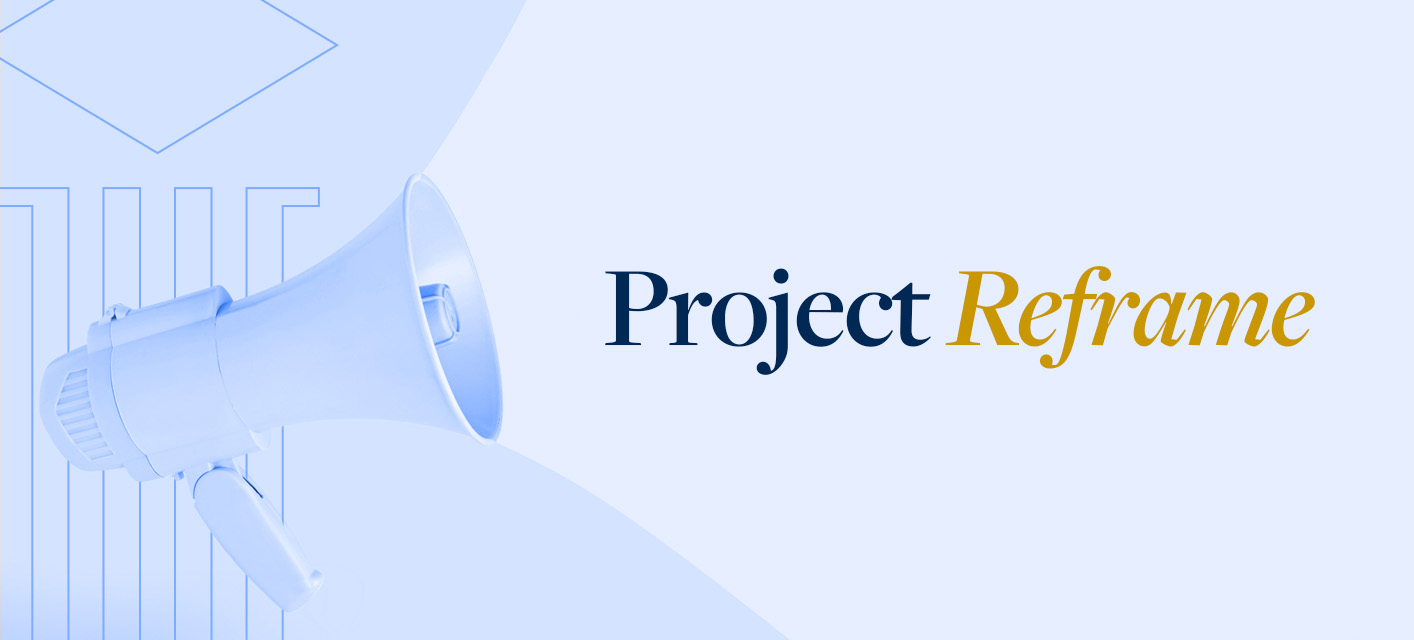
On May 31, the Institute wrapped Phase 2 of the highly successful, targeted, national, bilingual, multi-year advertising campaign - now famously known as Project Reframe.
Project Reframe was conceived of by the Insurance Institute, together with industry partners, to address the lack of awareness of what insurance careers are, and are not, in 2025. Perceptions of those unacquainted with the industry have shown to be deeply entrenched in outdated stereotypes and clichés. Negative stereotypes, when coupled with shortages of experienced and skilled new entrants to p&c, can do great harm. Project Reframe presented the opportunity to counter these disadvantages and cohesively take control of our industry’s narrative.
A very sophisticated career scape exists nowadays in p&c. Within the industry we know that our careers are some of the most dynamic, progressive and people-forward available. Wherever our customers are reeling from loss, the industry is right there leading the way. In fact, this industry is on the cutting-edge of what matters most to Canadians and deals with known and emerging matters consumers are facing such as cyber, political and climate risk as well as known issues. Rewarding industry careers exist across the spectrum and include Marketing, Legal, Agents, Brokers, Data Scientists, Claims Adjusters, Underwriters, IT, Customer Service, HR and more. The tools to do your job involve the latest tech, big data and even AI.
As we compete against other industries for career seekers in an era of digital media influence, we have chosen to introduce new audiences to the vibrancy of the industry we know, using relevant digital spaces where “net” new audiences work, live and play.
Net new audiences are the key here. The idea is not to continue to draw on each other’s talent pools, but to create interest amongst new audiences. These include recent graduates, career changers, and newcomers to Canada. Custom creative messaging per audience is delivered through digital channels including social media, programmatic, influencer marketing, search ads and extensive out-of-home network placements, that enable us to expand and broaden audience reach.
Our highly successful Phase 1, which ran for 18 weeks between January and May 2024, generated significant reach and frequency in English and French markets, producing 527.5MM actual impressions vs. 228MM planned impressions and 231% of plan goal.
Phase 2 of our national bilingual awareness ad campaign, Project Reframe, successfully messaged the strategic narrative of industry careers while instilling a strong sense of pride in the people employed in the business. It produced 895.5MM impressions and came in at 271% of plan goal.
The strong appetite for our message is evidenced by impressive Phase 1 and 2 results. Phase 2 has vastly exceeded planned metrics in all channels. Qualified leads are being directed to the Ignite Insurance Careers Program and other Insurance Career Connections initiatives, bringing net new talent to industry employers. This talent is excited by the prospect of industry careers and planning their pathway into the industry with enthusiasm.
As The Institute begins an asset refresh for Phase 3 audiences, we are well positioned to conquer clichés formed in a vacuum, by further demonstrating that a career in insurance is the career for driven, ambitious people who want a purposeful, impactful and stable career of choice.
View the current English, 30s video ads: PurposeMeetsPassion.ca
View the current French, 30s video ads: DonnerUnButALaPassion.ca
NextGen risk case competition: The industry future in good hands
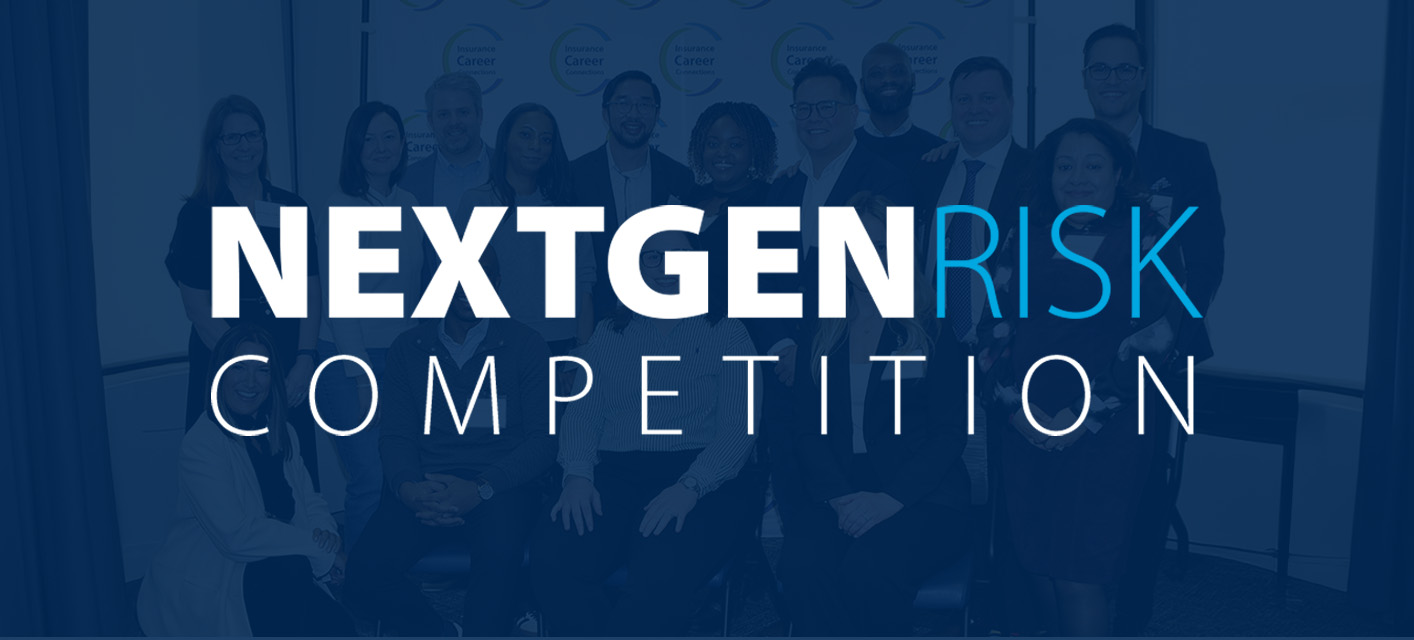
Over two days in mid-March, the Insurance Career Connections team held its first-ever NextGen Risk Insurance Case Competition. This enabled post-secondary students to ideate solutions for a significant risk scenario facing the industry today: cyber risk.
The NextGen Risk Case Competition involved 14 teams of students, studying insurance and business at schools in Ontario and Western Canada. On day one, as the teams arrived at the Institute’s Toronto offices, they received a case study involving a long-standing Canadian company that had become the victim of a ransomware attack.
Along with the case study, the teams were given questions to answer, and criteria the judges would use in marking their submissions. While none of the students have taken the CIP designation course C20: Cyber Risk, or have extensive cyber risk knowledge, the Institute also provided them with content from the C20 textbook as additional learning material. The teams then worked over the next eight hours to prepare their responses.
The next morning, the students delivered presentations to a panel of judges from the p&c industry. The process concluded by awarding three winning teams, who then delivered their presentations for a second time, with their competitors also observing.
These are the NextGen Risk Case Competition winners:
- First place – $4,000: University of Toronto
- Second place – $2,000: British Columbia Institute of Technology
- Third place – $1,000: Humber Polytechnic
Judges noted the teams’ aptitude for identifying issues and solving problems while demonstrating knowledge of risk transfer and cyber insurance policies, as well as their ability to answer questions about the broker, underwriter, pricing and risk perspectives. The judges were impressed by the teams who had just one day to put their responses together. They left a lasting impression of creative, outside-the-box thinkers, displaying strong talent.
“Some of the things they were discussing – that a lot of us commented on – we were doing in our third, fourth, fifth, even sixth year of doing this sort of business,” said judge Karishma Gabriel, who is Assistant Vice President, Complex Risks at Hub. “It gives me a lot of confidence that we're going to have future Cyber Risk Management, insurance Brokers and Underwriters who really understand what Cyber really is.”
So many of the students were comfortable with diving into the case and its complexities given that they arrived with an already well-rounded insurance education. To engage students who are interested in pursuing insurance careers, Insurance Career Connections has partnerships with some Canadian colleges and universities, where students may take CIP courses as credits towards their degrees or diplomas. Twelve of the schools that competed have these CIP partnerships.
“When they graduate, these students are well-positioned to finish the rest of their CIP because their post-secondary education already includes several completed CIP courses,” said Carolyn Seward, Manager, Insurance Career Connections. “This also helps them stand out as candidates because they’re recognized for graduating with a solid understanding of insurance, and it increases their employability in the industry.”
The connection between taking CIP courses in post-secondary schools as a solid foundation for a career in p&c was also observed by several judges, who see a bright future for many of the student competitors.
“These programs are doing a very good job at readying these students for long careers in the industry,” said judge Greg Markell who is President & CEO of Ridge Canada Cyber Solutions Inc. “The Specialty, the D&O, the Cyber, the intangible loss and intangible risk management roles are oftentimes something that's more on the horizon than right in the immediate future. But I think some of the people, who I had the fortune of listening to and being able to judge, are ready to step right into some of these roles.”
Stay tuned for news about next year’s NextGen Risk competition.
CIP Society Quarterly Review: Climate change and catastrophes
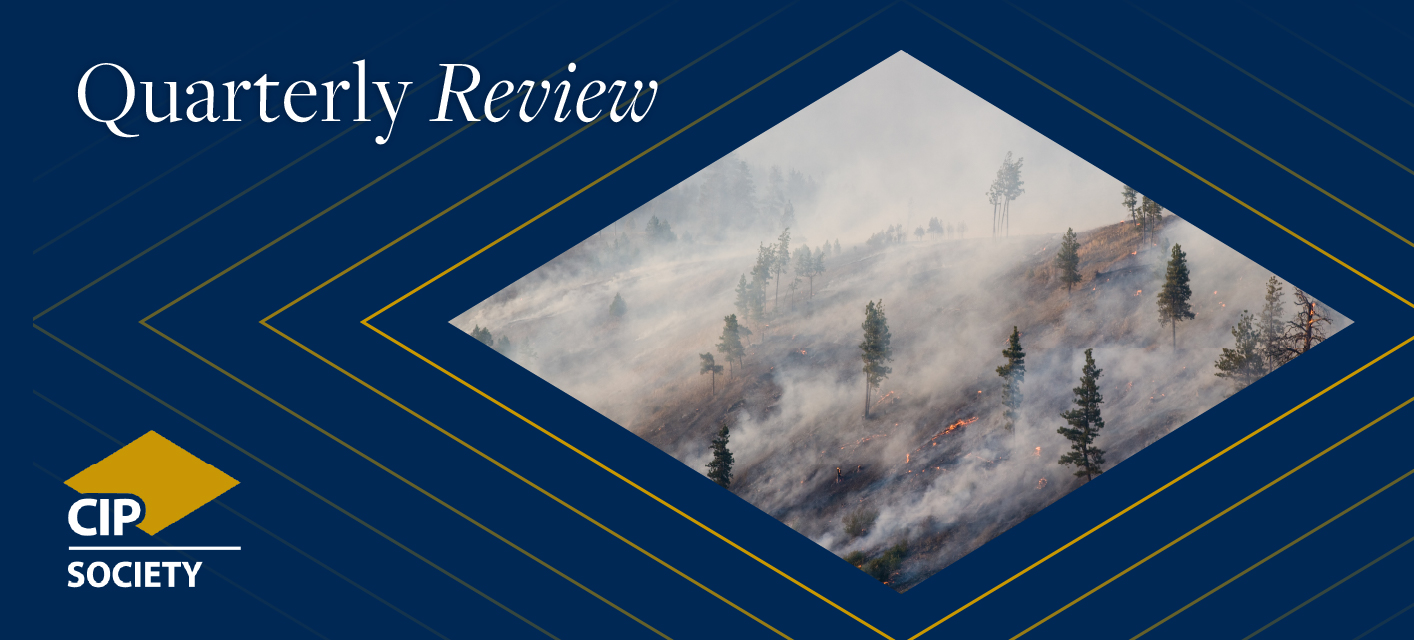
Canada saw $9 billion in insured catastrophe losses in 2024, the highest on record. Wildfires, flooding, and hailstorms caused much of the damage, reflecting the growing impact of climate change. With warming happening faster here than anywhere else on earth, extreme weather is expected to drive up claims and put pressure on catastrophe financing.
Disaster losses are growing at about 9 percent annually, almost three times the rate of GDP. One industry leader notes that given the rise in catastrophe claims, senior management will find it increasingly challenging to design and secure appropriate reinsurance programs.
The CIP Society Quarterly Review looks at how insurers can manage these risks through resilience measures, risk awareness, and financing strategies. Read the full article.
P&C professionals “faceoff” at the main event of the season
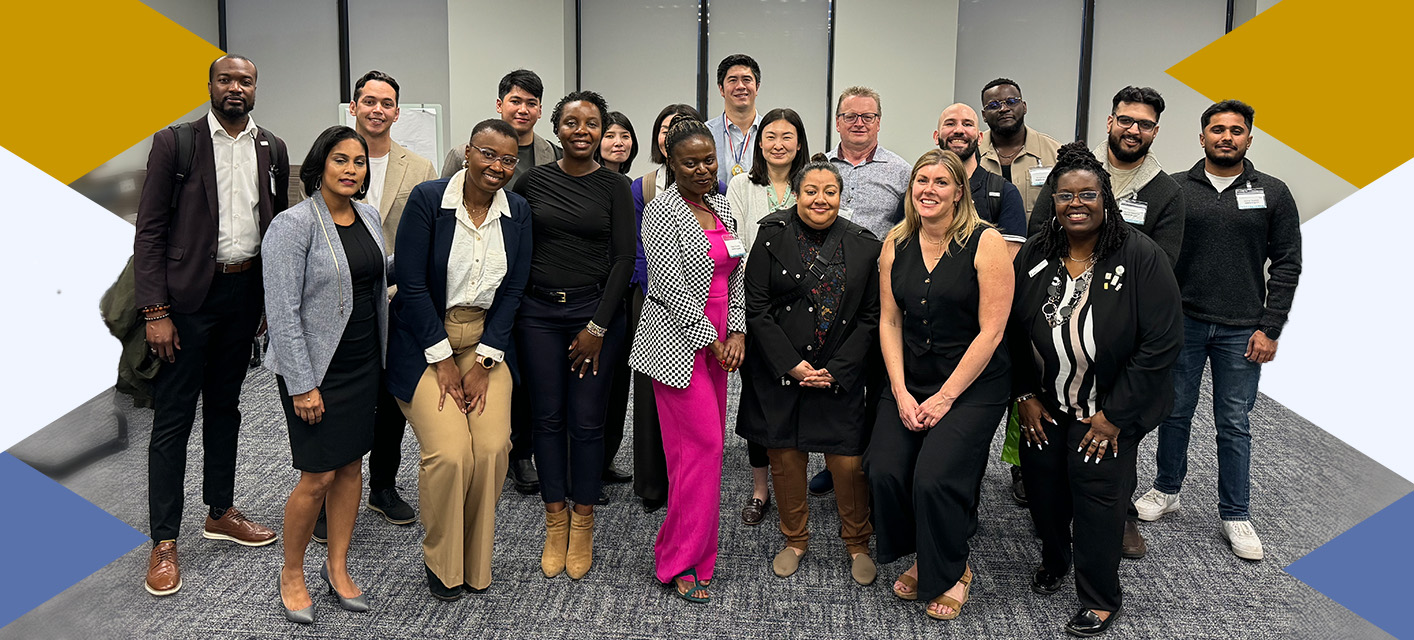
In May 2025 the Insurance Career Connections team held the Insurance Faceoff: Career Paths Showdown and Networking Event at the Insurance Institute’s offices in Toronto. It was the latest in a series of innovative initiatives geared towards engaging career changers, newcomers to Canada, and new graduates interested in insurance careers.
The Insurance Faceoff featured a friendly, interactive showdown between guest speakers from the p&c industry. Each speaker was given approximately 10 minutes to share perspectives from their current industry role, along with some stories and career advice showcasing the many benefits of insurance careers.
Insurance Faceoff guest speakers discussed the following industry roles:
- Brokering: Chris Aloussis, CIP, CRM, Client Solutions Manager at Gallagher
- Claims: Diana Dinala, CIP, Technical Claims Manager at CAA
- Claims: Ariana Ford, CIP, Unit Manager Property, Insurance Claims Services at CAA
- Underwriting: Chris de Sousa Costa, MBA, Managing Account Executive Officer, Specialty Insurance at Travelers Canada
Over 60 attendees gathered for networking and refreshments as they visited booths dedicated to underwriting, brokering, claims, risk management and data analyst roles. Together, guest speakers and additional industry ambassadors hosted these booths, offering insights from their own journeys. Colleagues and Instructors from the Insurance Institute of Ontario were also present to speak about designation and certificate offerings.
For the main event of the evening, everyone assembled around the “ring” for the Faceoff. Entering to the Rocky theme song, they made their pitch. Some spoke of why insurance is important, how it’s an excellent career choice, and the skills requirements, perks, challenges, and day-to-day responsibilities.
Attendee Kenneth Payyapilly, a recent university graduate with some industry experience, said “A key takeaway was that people shouldn’t be discouraged from pursuing Underwriting (or insurance more broadly) just because they may feel they lack the ‘right’ background. This resonated with me, as I believe many of us, myself included, have found our way into insurance through non-traditional paths.”
In the end, each speaker received a championship medal in recognition of their efforts. The true goal was to present insurance as a fun, engaging and rewarding industry, no matter the role.
“If I was able to leave the attendees with some words of advice it would be that being a broker is a career where you are constantly growing and is still a career where relationships matter.” said guest speaker Chris Aloussis.
“I did connect with a few attendees who were interested in pursing the insurance field,” said guest speaker Ariana Ford, acknowledging the event left an impression on attendees. “One of these individuals did have out-of-country claims experience, the other no insurance experience. Both expressed an interest in working in claims.”
The event continued by presenting recent IGNITE Program Kitchener-Waterloo session grads with their certificates. Everything ended after more networking, photos and snacks. The conversations will continue.
Interested in becoming an Insurance Career Connections Ambassador or attending their next event? Please contact cconnections@insuranceinstitute.ca.
Professional Ethics Column: The implications of artificial intelligence on data integrity

Artificial intelligence is transforming insurance, from claims handling to underwriting to brokerage operations. But with these advances come ethical questions about fairness, transparency, and integrity. This column was developed by Paul Griffiths, based on an idea from the CIP Society Professional Ethics Committee. We invite your views on these important topics.
Please send your comments to ethics@insuranceinstitute.ca. Selected responses may be published in the next issue of The Pace.
The scenario: Implications of artificial intelligence on data integrity
Three insurance industry veterans agreed to meet at an upcoming conference, its main theme centered on artificial intelligence. They planned to have a subsequent discussion on the knowledge they garnered at the event. The leaders each brought something different to the topic as they represented different parts of the industry, one was VP of a Claims department, one was a VP of Underwriting, and one was the owner of a mid-sized brokerage. Each agreed that the conference was helpful in confirming their current technical knowledge of artificial intelligence, but they were all left with concerns and unanswered questions about the ethical implications of this emerging technology.
1. Implications of using artificial intelligence to assess claims and damages
The first issue to be presented was brought forth by the VP of Claims. She recognized the validity of AI to make a claims adjudicator's life better by reducing some mundane tasks while perhaps speeding up processing times. Also, AI could provide a wealth of similar and historic claims from which decisions could be compared, but would it remove the intuition that adjudicators will often bring to bear on the review of a file? Will they become overly reliant on AI to reduce their workload, improve productivity, or a bit of both? Also, is there a duty on their part to advise clients that AI is used in the processing of their claim? What are the ethical implications of these questions?
2. Assuming risk based on a set of criteria in the underwriting process
The VP of Underwriting expressed similar concerns, albeit through an underwriting lens. The topic of productivity improvements was presented, with the same discussion about the reduction of mundane tasks, etc., but she also brought forth the matter of overuse of factors such as neighborhoods and postal codes in the approval and/or pricing process. Not unlike the claims process, she felt that intuition and experience could get disregarded, thus leaving some potential clients to be turned down or priced incorrectly. This could have detrimental impacts on clients, shareholders, and the company's reputation. These were also ethical issues, but how could they be mitigated?
3. The broker's perspective (new business, contingent commissions, etc.)
Lastly, the brokerage owner spoke up, and while agreeing with the concerns brought forward also suggested that he had some unique challenges that the others didn't. In particular, he was wondering about the ethical implications of using AI in the pursuit of new client business. He suggested that historically most of his typical workday was focused upon finding new clients, retaining existing clients, and generally running the business. But lately, due to struggles in both finding and keeping clients, the matter of rising costs had been moving to the forefront. He saw AI as an investment opportunity for his business that could aid in reducing costs through better processing. This was definitely a change in mindset for him (and for many of his fellow brokers) as he liked for his staff and himself to "get the feel of the file" by getting to know the client, by engaging in conversation, asking probing questions, seeing the big picture for his client. He had a sense that this approach might be reduced (or lost) by AI because programming might direct clients into marketing funnels that afforded him the greatest contingent commission opportunities (which may or may not be in the best interest of the client). What should he do to ensure that this does not happen?
The three friends agreed they were at an interesting time in the insurance business. But they wanted to conduct themselves with the highest level of integrity and transparency. How should they address the above issues?
Please send your comments to ethics@insuranceinstitute.ca. Selected responses may be published in the next issue of The Pace.
CIP Society Corner

Congratulations to our survey draw winners
Thank you to everyone who took part in the National CIP Society Member Benefits Annual Survey. Your feedback is essential in helping us improve and expand the benefits and services we provide. The insights we gain allow us to better meet the needs of our members and continue to grow the value of CIP Society membership.
We’re pleased to announce the draw winners, selected at random from survey participants. Each received a $100 Indigo gift card: Bryan Arsenault, Danielle Fox, Anita Phonprasith, and Melanie Propp. Thank you to all who contributed to making this year’s survey such a success.
Welcoming new national council members
The CIP Society National Council is made up of dynamic insurance professionals from across the country who help guide and strengthen our membership. Their experience and insight play an important role in shaping the work of the Society and advancing our goals.
At our Spring 2025 meeting, we were pleased to welcome five new members whose diverse expertise further strengthens the Council. We expect to add more members later this year as others complete their terms.
Please join us in welcoming:
Josiane Berube, ACIP, Regional Manager of Quebec, Wynward Insurance
Matthew Friesen, BBA, FCIP, CAIB, Senior Vice President, Central Sales, Western Financial Group
Isaac Kangave, FCIP, Manager, Bodily Injury, Alberta and BC, SGI CANADA
O. Martin Moran, ACIP, Claims Manager, British Columbia, BFL Canada
Simion Prodan, CIP, Special Lines Underwriting Manager, Co-operators
Noticeboard

Membership renewal helps you stay in the know!
As a member, you can continue to give your career a boost with our coveted CIP, ACIP, FCIP, and CMGA designation programs and our Risk Management and Commercial Insurance Certificate programs, as well as through professional development opportunities that give you access to the latest industry knowledge and real-world practices.
Our membership year runs from June 1 to May 31. We have already sent notifications out to you or your employer by e-mail or post, and our Member Services team is busy processing renewal payments. If you haven’t renewed your membership already, we encourage you to do so as soon as possible to ensure that service interruptions are avoided.
Renew and pay on-line now — it’s quick and easy:
1. Go to www.insuranceinstitute.ca *
2. Click on the “My Account” tab on the home page.
3. On the “Login” page, log in with your User/Member ID and Password.
4. On the “Overview” page, renew and pay for your membership online.
If you require any assistance, please contact our Member Services Team as soon as possible at 1-866-362-8585, Monday to Friday, from 8:00 a.m. to 7:00 p.m. EST.
* Be sure to view your profile and update your details if they have recently changed.
2025 — Annual General Meeting
The 72nd Annual General Meeting of The Insurance Institute of Canada will be held in St. John’s, Newfoundland and Labrador, on Tuesday, October 28, 2025, at the Delta Hotels St. John’s Conference Centre. The meeting will begin at 3:30 p.m. NDT and follow this agenda:
1. Notice Calling Meeting; Roll Call
2. Reading of Minutes
3. Reports of Officers, Councils, and Committees (including Chair’s Address)
4. Annual Financial Statements and Auditor’s Report
5. Approval of Acts of Governors
6. Elections
7. Appointment of Auditors and the Determination of Their Fees
8. Such other business as may be properly brought before the meeting
9. Termination
Stéphane Lespérance, CRM
Chair of the Board of Governors
Peter Hohman, MBA, FCIP, ICD.D
Chartered Insurance Professional
President and Chief Executive Officer
Course Text Updates — August 2025
English course textbook updates
French course textbook updates
Call for content contributors
Are you looking to share your industry knowledge and understanding of current best practice? Are you eager to participate in a rewarding professional development experience? Consider joining our community of industry professionals and contributing to the Insurance Institute of Canada’s expanding content library and course offerings.
We are looking for volunteers with:
- a minimum of three to five years’ experience in the p&c industry, such as underwriting, claims, risk management, and sales; and
- expertise in emerging and evolving fields, such as data analytics, extreme weather, pandemics, autonomous vehicles, and cyber security.
Past experience in writing or teaching is not required—a dedicated editor will guide you through the process and help you review, update, and/or write content.
As a volunteer, you will be thanked in the Institute’s annual report and receive an honorarium for your contribution.
If you or someone you know would like to share your expertise and contribute to the development of the Institute’s professional designation and certificate programs, contact academicprograms@insuranceinstitute.ca. As a next step, you’ll be asked to fill out a brief online form outlining your experience and credentials. The academic programs team will then determine how your expertise aligns to the projects that are under way.
The Insurance Institute welcomes your expertise!
